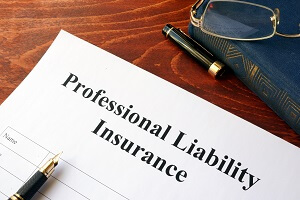 As self-employed or 1099 contractors, it’s crucial to have comprehensive insurance protection. Much like any other small business, you can also experience lawsuits when sued, and liability claims (third-party claims) can be increasingly expensive.
As self-employed or 1099 contractors, it’s crucial to have comprehensive insurance protection. Much like any other small business, you can also experience lawsuits when sued, and liability claims (third-party claims) can be increasingly expensive.
If you lack a contractor insurance policy, and your clients sue you, you’ll have to pay out-of-pocket costs—enough to shut down your business. This article will walk you through the different types of contractor insurance you’ll need.
General Liability Insurance
General liability insurance (sometimes called commercial general liability insurance) covers various business risks, such as advertising injury, customer injury, and property damage. This coverage protects you against high-cost lawsuits, helping you qualify for contracts and leases.
Like small business owners, independent or self-employed contractors are liable and can be sued for damages. Here are a few reasons why general liability coverage is vital for self-employed contractors:
- The Coverage Protects You Along With Your Business: Believe it or not, self-employed contractors have similar liability exposures and legal obligations as larger companies. Third parties can sue you for causing bodily injury, advertising injury, or damaging property. General liability contractor’s insurance helps cover the cost of lawsuits, including damages you’re ordered to pay and legal fees.
- Your Potential Clients Require This Insurance: Many clients sign contracts with self-employed contractors only after ensuring they have general liability coverage. Without it, they can be held liable for alleged accidents or wrongdoings caused by your work or you.
- The Law Requires You To Have It: State rules and regulations often require self-employed contractors in specific industries like construction to have a general liability policy. For better and smooth business operations, it’s better if you and the client acquire individual general liability policies.
Professional Liability Insurance
Often known as ‘errors and omissions insurance’ coverage, professional liability protects small business owners against lawsuits over a bad piece of advice or alleged mistakes (unsatisfactory work).
Professional liability is crucial for self-employed contractors, such as accountants, financial planners, or interior designers, who offer professional services or expert advice.
This contractor insurance policy:

- Offers Financial Protection: When clients file lawsuits against you over poor work performance, this insurance can cover legal expenses (for instance, you’re an independent construction contractor who faces litigation for work delays). In this case, professional liability protects you against legal costs.
- Helps You Remain Compliant With the Law: Based on the work you do, state rules and regulations may require self-employed contractors to have a professional liability policy. For instance, real estate brokers and agents often require this insurance. Moreover, healthcare professionals and lawyers may also need malpractice insurance coverage, another name for professional liability.
- Helps You Stand Out From the Competition: Many clients choose to work with independent contractors with professional liability coverage than those without.
- Meets Client’s Contracts: Your client may request for “certificate of professional liability insurance” or include it within the freelance contract.
What Other Self-Employed Contractor Insurance Should You Consider?
In addition to general and professional liability coverage, independent contractors and small businesses may need the following insurance policies.
Commercial Auto
Also called business auto insurance, commercial auto protects vehicles used primarily for business, whether personal or company-dedicated. The policy covers damages to company vehicles and bodily harm when you or employees cause accidents. Commercial auto offers five different types of protection:
- Auto liability (covers legal expenses when someone sues you over damages caused by you or your company vehicle);
- Medical payments (covers medical bills associated with accidents);
- Collision coverage (covers car damage);
- Comprehensive coverage (covers vehicle damage from vandalism and theft); and
- Uninsured motorist policy (covers passengers and drivers from uninsured operators/drivers).
Commercial Property
Commercial property coverage pays to replace or repair stolen, damaged or lost business property. The policy protects your business location, including other valuable assets such as equipment.
It protects you from various risks of renting or owning a storefront, office, or other commercial property and can cover property losses due to fire or pipe bursts.
Landlords often require renters to have commercial property coverage when signing the lease. This policy covers your:
- Business-owned building;
- Fixtures and furniture;
- Inventory; and
- Supplies & equipment.
Workers’ Compensation
 Workers’ compensation covers lost wages and medical costs for work-related illnesses and injuries. Every state requires this policy for businesses with employees. Besides small businesses, some self-employed contractors must also carry workers’ compensation coverage when working in much riskier professions like building trades and roofing.
Workers’ compensation covers lost wages and medical costs for work-related illnesses and injuries. Every state requires this policy for businesses with employees. Besides small businesses, some self-employed contractors must also carry workers’ compensation coverage when working in much riskier professions like building trades and roofing.
Although it’s not compulsory for independent contractors without employees to have this policy, it would be better if they carry it. Health insurance may deny your claims for workplace injuries, meaning you may face lost income and medical bills while trying hard to make a living.
Here are a few things workers’ compensation covers:
- Medical expenses;
- Disability benefits;
- Compensation for injury, especially fatal accidents; and
- Workplace injury lawsuits.
Consult Our Insurance Agents for the Best Self-Employed Plans
Insurance is an integral part of any business, whether you’re a small startup, established business, or independent contractor. Are you an independent contractor seeking to protect your business against potential lawsuits?
John M. Glover (JMG) Insurance can help! We provide customized and comprehensive insurance policies that best meet independent contractors’ needs. For more information, contact us directly!




